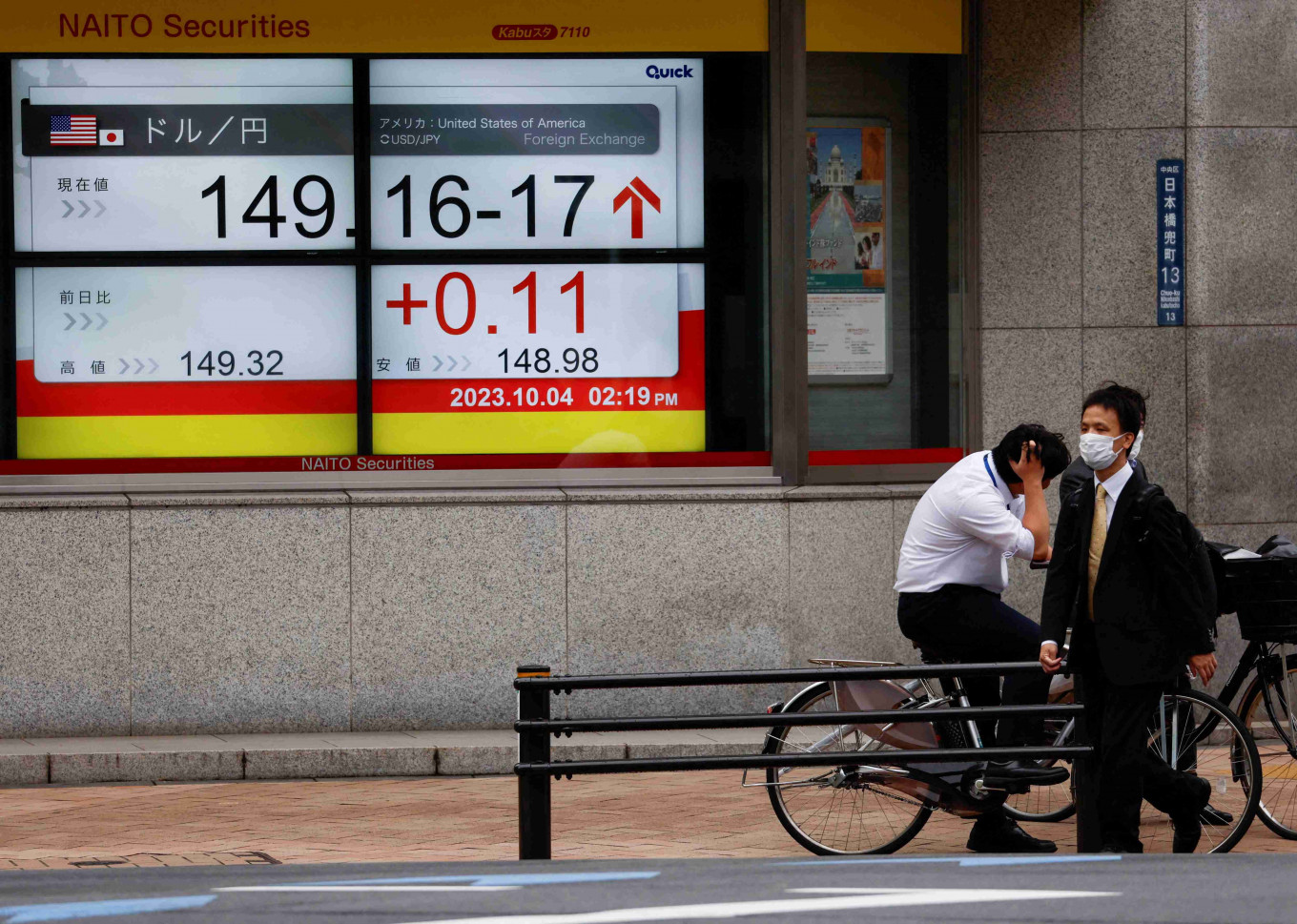Popular Reads
Top Results
Can't find what you're looking for?
View all search resultsPopular Reads
Top Results
Can't find what you're looking for?
View all search resultsJapan unexpectedly slips into recession
Some analysts are warning of another contraction in the current quarter as weak demand in China, sluggish consumption and production halts at a unit of Toyota Motor Corp all point to a challenging path to an economic recovery.
Change text size
Gift Premium Articles
to Anyone
J
apan unexpectedly slipped into a recession at the end of last year, losing its title as the world's third-biggest economy to Germany and raising doubts about when the central bank would begin to exit its decade-long ultra-loose monetary policy.
Some analysts are warning of another contraction in the current quarter as weak demand in China, sluggish consumption and production halts at a unit of Toyota Motor Corp all point to a challenging path to an economic recovery.
"What's particularly striking is the sluggishness in consumption and capital expenditure that are key pillars of domestic demand," said Yoshiki Shinke, senior executive economist at Dai-ichi Life Research Institute.
"The economy will continue to lack momentum for the time being with no key drivers of growth."
Japan's gross domestic product (GDP) fell an annualised 0.4 percent in the October-December period after a 3.3 percent slump in the previous quarter, government data showed on Thursday, confounding market forecasts for a 1.4 percent increase.
Two consecutive quarters of contraction are typically considered the definition of a technical recession.
While many analysts still expect the Bank of Japan to phase out its massive monetary stimulus this year, the weak data may cast doubt on its forecast that rising wages will underpin consumption and keep inflation durably around its 2 percent target.
"Two consecutive declines in GDP and three consecutive declines in domestic demand are bad news, even if revisions may change the final numbers at the margin," said Stephan Angrick, senior economist at Moody's Analytics.
"This makes it harder for the central bank to justify a rate hike, let alone a series of hikes."
Economy minister Yoshitaka Shindo stressed the need to achieve solid wage growth to underpin consumption, which he described as "lacking momentum" due to rising prices.
"Our understanding is that the BOJ looks comprehensively at various data, including consumption, and risks to the economy in guiding monetary policy," he told a news conference after the data's release, when asked about the impact on BOJ policy.
The yen was steady after the data and last stood at 150.22 per dollar, pinned near a three-month low hit earlier in the week.
Yields on Japanese government bonds fell after the data as some traders pushed back bets of an early BOJ policy shift. The benchmark 10-year yield slid 4 basis points to 0.715 percent. The Nikkei stock average rallied to 34-year highs, with the data further underpinning recent reassurances from the BOJ that borrowing costs will stay low even after ending negative rates.
"Weak domestic demand makes it hard for the BOJ to pivot towards monetary tightening," said Naomi Muguruma, chief bond strategist at Mitsubishi UFJ Morgan Stanley Securities. "The hurdle for ending negative rates in March has risen."
Japan's nominal GDP stood at $4.21 trillion in 2023, falling below $4.46 trillion for Germany to rank as the world's fourth largest economy, the data showed.










